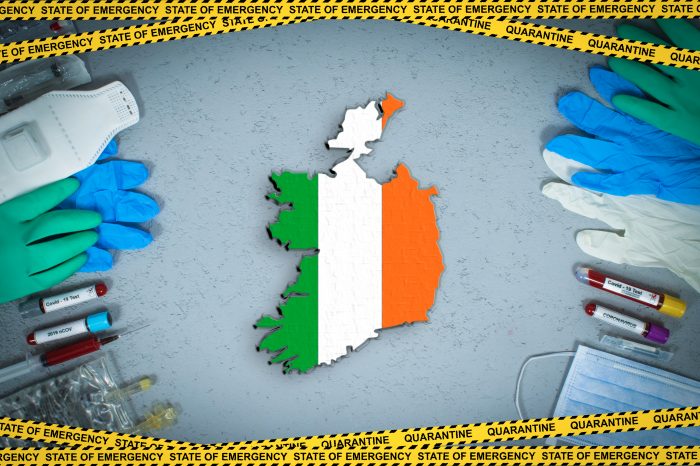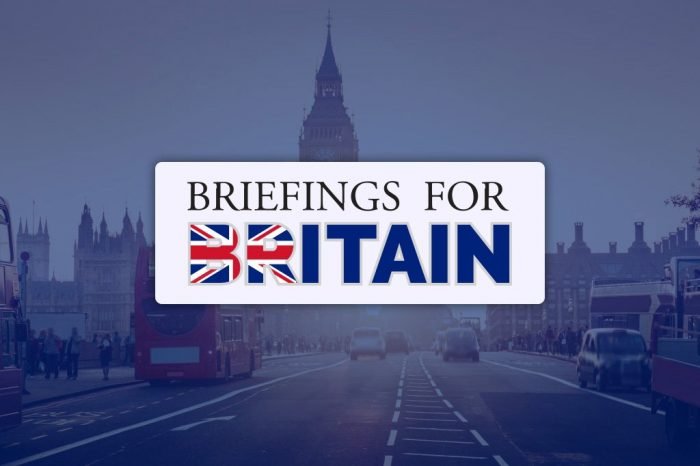Can we trust Tony Blair?
So many ghosts from British politics past have returned from the dead to make some idiotic comment about the EU in the last few months that it has not been worth the effort to give our readers a resumé of all their drivel. After all, keeping track of Nick Clegg’s daft statements about the EU is almost a full-time job, as he makes so many of them.
However, one cannot let Tony Bliar’s intervention pass without comment, as it illustrates perfectly the utter contempt that some senior politicians feel for the people who elected them into office and explains why disillusion with politicians is so widespread in the country.
Blair said that he fully supported Ed Miliband’s decision not to offer the UK electorate a referendum on whether we should leave the EU or not.”This issue”, he said at a speech in his former Sedgefield constituency, “touching as it does the country’s future, is too important to be traded like this.”
Let’s unpack these words. What he is saying is that, essentially, the general public – you and I, in other words – cannot be trusted to make an informed decision about whether we should stay in the EU or not. He pointed out how the Scottish independence referendum had proven “the fragility of public support for the sensible choice.” What arrogance! “If I, the great Tony Blair, think a certain course of action is right, any opposing views must be dismissed as stupid.”
He also claimed that if we were to have a referendum on EU membership simply because it was now 40 years since the last one, then we should have a referendum on our NATO membership as well. This is a completely spurious argument. We were not led into NATO under false premises, being told it was one thing when in reality it was another. Furthermore, while NATO has enlarged to take in some of the former Soviet bloc nations, it still remains what it always was – a defensive alliance. On the other hand, the EEC/EU has changed beyond all recognition since 1975. Forty years ago, there was no directly elected European Parliament, no single currency, far less use of qualified majority voting and so on. In 1975, you could believe, if you didn’t look too closely beneath the surface, that we were just part of another trading bloc like EFTA.
No one can be under any illusions now about our subjugation to the unelected bureaucrats of the European Commission – a subjugation Blair himself facilitated by signing the Nice Treaty of 2001. We have never been asked if we wanted to join an embryonic superstate and, for all his faults and in spite of his rather dubious motives, David Cameron was right to reply to Blair by saying that, “You can’t stay in an organisation unless it has the full-hearted consent of the people.”
Blair went on to say, “If Britain left, the rest of Europe will be vigorous in ensuring the UK gets no special treatment.” Has he never read Article 8 of the Lisbon Treaty? It states that “The Union shall develop a special relationship with neighbouring countries, aiming to establish an area of prosperity and good neighbourliness”? While it has to be admitted, the EU hasn’t been doing too well in relating to its large neighbour to the East, it is unlikely that on independence, our country will elect as leader an awkward, aggressive brute like Vladimir Putin.
He took the all-too-familiar line about the damage which Brexit would allegedly do to the economy. While we can take it as read that he has never studied the informed analyses of supporters of withdrawal such as Robert Oulds, Richard North, Ruth Lea and Tim Congdon, all of whom have pointed to economic benefits from withdrawal, is it too much to think that he has never studied Open Europe’s work? As we recently pointed out, this pro-EU think tank claimed that a free trading deregulated UK would actually be better off outside the EU if the exit was handled well.
Equally tedious was Blair’s claim that we would be “diminished in the world” and “out of the leadership game” if we left the EU. In what way? We would still a member of NATO, we would still occupy one of the permanent seats on the UN security council (for all that is worth); we would still be a world leader in financial services, we would still be one of the largest economies in the world. In fact, we would regain our own seat at the World Trade Organisation instead of having to be represented by the EU. It gets better. We would not be having to compromise in every foreign policy decision and need not get sucked into conflicts such as in the Ukraine in which we have no strategic interest. Unfortunately for the likes of Tony Blair, it would provide fewer opportunities for future UK prime ministers to strut around in front of the world’s media at those twice yearly tedious EU summits, posing as some sort of great world leader.
However, the most irritating of all his comments in this thoroughly irritating speech was his caricature of anyone who loves their country. He is correct in saying “national pride is a great thing” but to call UKIP (and presumably by extension anyone else who wants out of the EU) “mean-spirited” is a typical Europhile tactic. He said that “Nationalism is a powerful sentiment. Let that genie out of the bottle and it’s a Herculean task to put it back in.” This statement was made in the context of comparing the Scottish independence referendum with David Cameron’s proposed referendum on EU membership. It is all too apparent from the surge in support for the SNP that last September’s vote has not put the issue to bed for a generation as had been hoped at the time. Blair’s fear is that whatever the result of a referendum in 2017, a similar surge in support for withdrawal may develop into an unstoppable momentum. He will hopefully be proved right. After all, let’s face it. Will CIB give up if we don’t get the right result in 2017? Will Global Britain? Will UKIP? Will Get Britain Out? What is wrong with loving our country to the point when we would prefer to be run by our own elected representatives and governed by our own laws? It is all too apparent that the EU is losing popularity across a number of member states and with good reason. It is a failed project that, like Tony Blair himself, belongs to a bygone era.
Photo by Chatham House, London 







